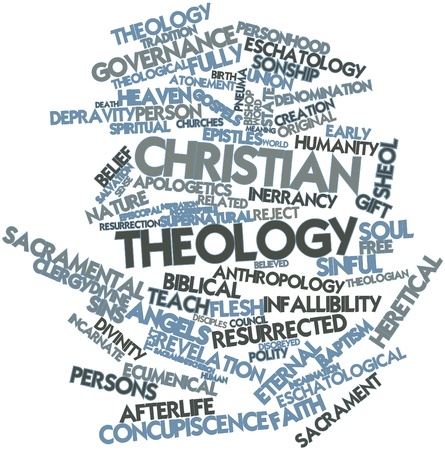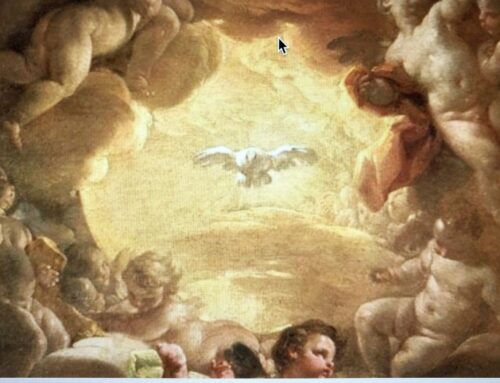 A friend recently recommended a slender spiritual book, Poverty of Spirit. Written by Johannes Baptist Metz, a German Catholic theologian, it was first published in 1968 and republished thirty years later. What I found most interesting in reading it is that, though it contains genuine insights, it is also self-contradictory and misleading. The reason, I believe, is a cultural movement that began in the 1960s.
A friend recently recommended a slender spiritual book, Poverty of Spirit. Written by Johannes Baptist Metz, a German Catholic theologian, it was first published in 1968 and republished thirty years later. What I found most interesting in reading it is that, though it contains genuine insights, it is also self-contradictory and misleading. The reason, I believe, is a cultural movement that began in the 1960s.
Early on, Metz states, “We must fully become what we are—a human being.” This is the theological equivalent of Carl Rogers’ fallacious idea of “becoming a person.” In reality, we cannot become what we already are, but only what we are not. We can, of course, change from what we are to something different, such as what we are meant to be. Metz’s error is not insignificant and it causes mischief throughout his book.
He next urges that we “Lovingly accept the truth of our Being. For the moment we shall call this attitude ‘love of self.’ . . . Our ‘yes’ to our self, may be regarded as the ‘categorical imperative’ of the Christian faith. . . . Our self-acceptance is the basis of the Christian creed.”
“Assent to God,” he continues, “starts in our sincere assent to ourselves, just as sinful flight from God starts in our flight from ourselves . . . We can then understand why God had to prescribe ‘self-love’ as a virtue and one of the great commandments.”
Scripture does indeed speak of saying “yes,” but to God rather than to self. Where then does the notion of yes to self come from? And where in Christian theology can we find the idea that it is the “categorical imperative” of our faith, or that self-love is “one of the great commandments”? The answer to both questions is nowhere—it derives solely from Metz’s mistaken idea of becoming.
Metz goes on to speak of the “poverty of Jesus,” calling it “the self-renunciation through [which] he chose to redeem us.” This seems to signal a shift back to traditional theology. But his earlier focus on self again intrudes when he claims, “God’s fidelity to us is what gives us the courage to be true to ourselves.” True to ourselves rather than to God?
A few pages later, the author returns to traditional theology: “ . . . God showed us the proper spirit to have in becoming a human being; the spirit of poverty . . . A human being with grace is a human being who has been emptied, who stands impoverished before God . . . Only through poverty of spirit do we draw near to God; only through it does God draw near to us.”
The above passage is not only doctrinally sound but also movingly expressed. Unfortunately, it contradicts what Metz previously said about self-acceptance and self-love. Of what exactly does grace leave us “emptied”? Clearly, of ourselves. So what sense does it make to accept ourselves if we are then to be emptied of ourselves?
“When we encounter Jesus Christ,” Metz explains, “we become sharply aware of our innate poverty as human beings. . . We are all members of a species that is not sufficient unto itself. . . At the core of our existence, a ‘transcendental neediness’ holds sway. . . In the final analysis we have one of two choices: to obediently accept our innate poverty or to become the slave of anxiety.” This is sound theology, and it constitutes a powerful argument for cultivating humility and surrendering ourselves to God. Those, however, are the opposite of accepting and loving ourselves.
When Metz returns to his discussion of poverty of spirit, his advocacy of self-love creates a further problem—conflating the two. He writes:
We mentioned earlier that humble acceptance of our authentic Being is self-love in the Christian sense. In biblical terms it is ‘poverty of spirit.’ It is . . . bearing witness to ourselves, professing loyalty to our radical poverty, and shouldering the weight of self-emptying. It is our consent to self-surrender. In poverty of spirit we learn to accept ourselves as beings who do not belong to ourselves . . . We truly ‘possess’ this radical poverty only when we forget ourselves and look the other way.
The paragraph is self-contradictory. The last sentence, however, strikes the right theological note—forgetting ourselves. Here is how the paragraph would look if it were revised to remove the self-love references and to focus solely on forgetting self.
Poverty of spirit is being aware of our radical poverty and shouldering the weight of self-emptying. It is our consent to self-surrender. In poverty of spirit we learn to acknowledge our radical poverty, forget ourselves, and look to God.
Metz goes on to say some moving and even brilliant things. For example, “to be able to surrender oneself and become ‘poor’ is . . . to be with God.” Also, “the only image of God is the face of our neighbor.” And best of all, “Love of neighbor, then, is not something different from love of God; it is merely the earthly side of the same coin.” Unfortunately, in the middle of these insights, he says, “We can only find ourselves and truly love ourselves through the poverty of an immolated heart.” (To be consistent with the idea of surrendering self and being with God he should have said, not find and truly love ourselves, but find and truly love God.)
For the final two chapters, Metz stays with the traditional theological view and offers some stirring reminders of it, notably these:
In total self-abandonment and full commitment to another we become completely poor . . . This openness to others can be enjoyed only in the poverty of self-abandonment; egotism destroys it.
To become human as Christ did is to practice poverty of spirit, to obediently accept our innate poverty as human beings . . . [We have] no contribution to make except self-abandonment, no consolation except God alone.
The ultimate word of impoverished humankind is “Not I, but Thou.”
To summarize, Metz makes a laudable argument for the proposition that acquiring a spirit of poverty like that shown by Christ Himself is essential to reaching our potential as human beings created in God’s own image. Unfortunately, the argument is flawed by incorporating the fallacious view of self promulgated by Carl Rogers.
Metz’s book is but one example of how Humanistic Psychology has confounded Christian theology. (Metz may, of course, have been unconsciously rather than consciously influenced.) I chose it because it illustrates how a seemingly modest alteration in one or more concepts—in this case, self, person, humanity—can have a dramatic impact on an entire discipline, even many disciplines, and affect individual lives in innumerable ways. The more we understand such impact, the more we can make sense of the significant changes in our society and culture that have occurred over the past sixty years.
Copyright © 2016 by Vincent Ryan Ruggiero. All rights reserved


